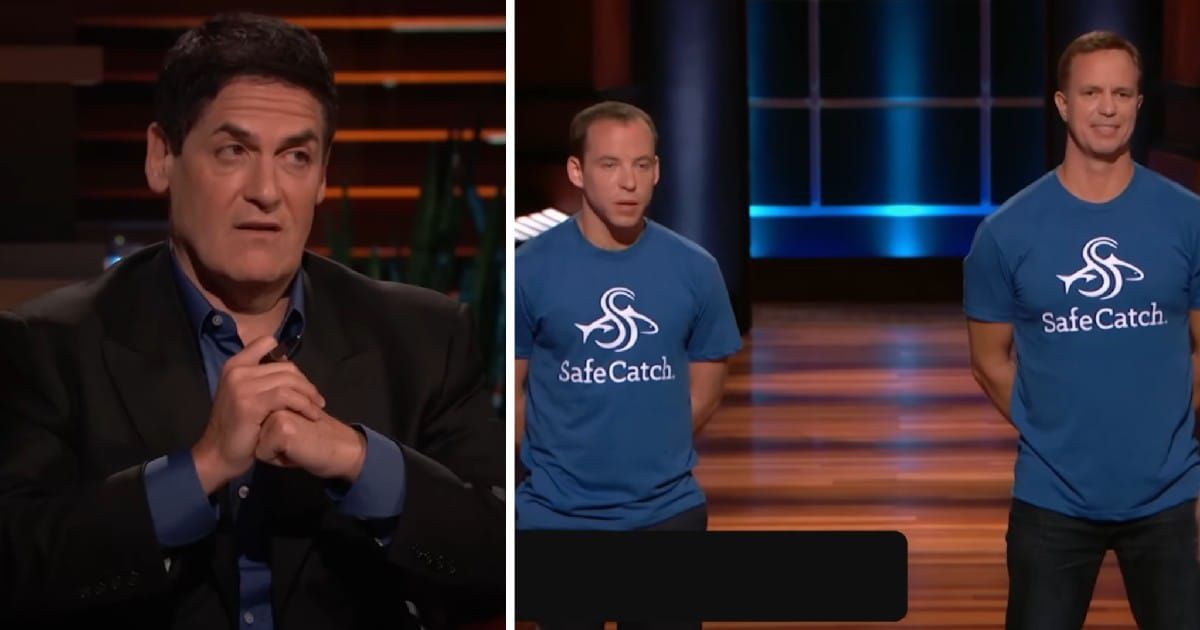‘Shark Tank’ duo's healthiest tuna wows judges, but one alarming issue kills the deal in heated moment

On ‘Shark Tank,’ great ideas often get the spotlight, but only sustainable businesses walk away with funding. That balance of passion and profit is what makes or breaks a pitch. One company that illustrated this all too clearly was SafeCatch, a startup that promised to make canned tuna healthier than ever before. They captured the sharks’ interest right away, only for it to unravel once the deeper numbers came to light. Founders Sean Wittenberg and Bryan Boches didn’t show up with a typical food product. Instead, they had a mission to solve one of seafood’s most persistent health risks: mercury contamination. They were seeking $600,000 for just 3% equity.
The pair positioned SafeCatch not only as a tuna company but as a tech-driven health brand. The sharks were offered a sample, and to their surprise, the tuna was delicious. Mark Cuban acknowledged the ambition. “You’re just trying to be the healthiest tuna available,” he said. It seemed like a strong start, especially since flavor and health benefits were both working in the company’s favor. What separated SafeCatch from any other tuna brand was its proprietary testing system. Mercury, a heavy metal found in varying levels in seafood, has long been a concern for consumers. High exposure can cause long-term health problems, and yet most tuna on the market isn’t screened individually.
View this post on Instagram
Traditional testing costs around $100 per fish, as per Market Realist. It’s an impossible figure for large-scale food production. SafeCatch’s machine changed the game. Capable of running 1,000 tests in a short time, the device allowed them to screen fish quickly and cost-effectively. This wasn’t a simple kitchen invention. It was the product of years of scientific research and roughly $14 million in development. Originally, the technology had been backed by investors, labs, and even PhD-level scientists. But when funding dried up, Wittenberg and Boches seized the opportunity. For $900,000, they acquired the rights and set out to build a business around it.
As convincing as the technology was, financial reality soon shifted the sharks’ mood. SafeCatch had achieved more than $1 million in sales in a single year, proof that there was a demand for cleaner, safer tuna. But the company was hemorrhaging money. They revealed that monthly losses hovered around $70,000, totaling more than $530,000 in just one year, according to Shark Tank Recap. For the sharks, this wasn’t a small hiccup; it was a glaring issue. Cuban, who might have been their best hope, became increasingly frustrated. While he repeatedly tried to understand the science behind the testing machine, the founders continued steering the conversation back to revenue projections and losses.
His patience wore thin. “You guys got to listen more than you sell,” he finally warned them. By the time negotiations wrapped up, the sharks had made up their minds. The $600,000 valuation for such a tiny equity slice was too steep. The financial losses were too severe. And despite the innovation, the entrepreneurs hadn’t convinced the panel that the business could be profitable in the near future. No offers were made. The sharks admired the vision but refused to take on the risk. Cuban, in particular, might have entertained a smaller or tech-focused investment, but with his questions unanswered, even he walked away. SafeCatch’s founders left without a deal, even after serving up a product that delighted the sharks’ taste buds.










